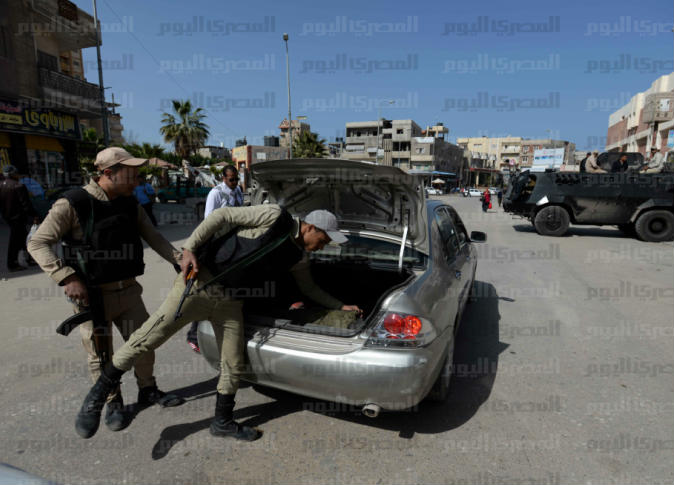
Suspected Islamic State militants in Egypt's turbulent Sinai Peninsula ambushed a taxi in which off-duty policemen were traveling back to their units on Saturday, killing five of them before fleeing, according to security and medical officials.
They said the incident took place just south of the coastal Sinai city of el-Arish.
The soldiers were returning to duty from home leave.
Earlier on Saturday, a roadside bomb planted by suspected IS militants hit a police armored personnel carrier in northern Sinai, wounding nine policemen inside, the local police headquarters said in a statement. One of the nine later died of his wounds in hospital.
A statement by the local police headquarters said the attack took place just outside the border town of Rafah.
The attacks are the latest in a war of attrition waged by militants led by the Islamic State's affiliate in Sinai, where security forces have battled insurgents for years. The insurgency by the militants in Sinai grew more intense after the 2013 ouster of elected president, Mohammed Morsi, who is an Islamist.
Also Saturday, police say the severed head of a man who had been abducted by suspected militants for his alleged cooperation with authorities turned up in Rafah.
Separately, security officials said suspected IS militants on Saturday kidnapped four clerics belonging to the mystic Sufi sect of Islam from their homes in the village of Nagaa Shabanah on the Egyptian-Israeli border south of Rafah. The four, according to the officials, had repeatedly spoken out in public against the killing by IS militants of local civilians suspected of links to security forces.
The radical and austere interpretation of Islam embraced by the Islamic State group disenfranchises the Sufis for what it sees as idol worshipping and unorthodox rituals, like dancing and singing on religious occasions.
Also in Rafah, according to the officials, security forces building a new checkpoint on the town's outskirts killed five militants who attacked the site to disrupt the construction.
The security and medical officials spoke on condition of anonymity because they were not authorized to speak to the media.




